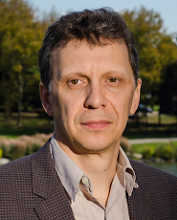Finding a good English translation of Russian poetry is always challenging. So, I would like to share with you this excellent, excellent translation of Vladimir Vysotsky by Andrey Kneller:
Песня о друге
Если друг оказался вдруг
И не друг, и не враг, а - так,
Если сразу не разберешь,
Плох он или хорош.
Парня в горы тяни - рискни!
Не бросай одного его,
Пусть он в связке в одной с тобой -
Там поймешь, кто такой.
Если парень в горах - не ах,
Если сразу раскис и - вниз,
Шаг ступил на ледник и - сник,
Оступился - и в крик, -
Значит, рядом с тобой - чужой,
Ты его не брани - гони:
Вверх таких не берут, и тут
Про таких не поют.
Если ж он не скулил, не ныл,
Пусть он хмур был и зол, но - шел,
А когда ты упал со скал,
Он стонал, но - держал,
Если шел за тобой, как в бой,
На вершине стоял хмельной, -
Значит, как на себя самого,
Положись на него.
(1966)
A song about a friend
If your friend just became a man,
Not a friend, not a foe,- just so,
If you really can't tell from the start,
If he's strong in his heart, -
To the peaks take this man - don't fret!
Do not leave him alone, on his own,
Let him share the same view with you-
Then you'll know if he's true.
If the guy on the peak got weak,
If he lost all his care - got scared,
Took a step on the frost - got lost,
Tripped and screamed in exhaust, -
Then the one you held close is false,
Do not bother to yell- expel, -
We can't take such aboard, and in short
We don't sing of his sort.
If the guy didn't whine nor pine,
He was dull and upset, but went,
When you slipped from the cliff,
He heaved, holding you in his grip;
If he walked right along, seemed strong,
On the top stood like he belonged, -
Then, whenever the chances are slim
You can count on him!
Some think of Vysotsky as just a bard who wrote and performed his own songs, I also think of him as one of the greatest Russian poets of the 20th century.
Песня о друге
Если друг оказался вдруг
И не друг, и не враг, а - так,
Если сразу не разберешь,
Плох он или хорош.
Парня в горы тяни - рискни!
Не бросай одного его,
Пусть он в связке в одной с тобой -
Там поймешь, кто такой.
Если парень в горах - не ах,
Если сразу раскис и - вниз,
Шаг ступил на ледник и - сник,
Оступился - и в крик, -
Значит, рядом с тобой - чужой,
Ты его не брани - гони:
Вверх таких не берут, и тут
Про таких не поют.
Если ж он не скулил, не ныл,
Пусть он хмур был и зол, но - шел,
А когда ты упал со скал,
Он стонал, но - держал,
Если шел за тобой, как в бой,
На вершине стоял хмельной, -
Значит, как на себя самого,
Положись на него.
(1966)
A song about a friend
If your friend just became a man,
Not a friend, not a foe,- just so,
If you really can't tell from the start,
If he's strong in his heart, -
To the peaks take this man - don't fret!
Do not leave him alone, on his own,
Let him share the same view with you-
Then you'll know if he's true.
If the guy on the peak got weak,
If he lost all his care - got scared,
Took a step on the frost - got lost,
Tripped and screamed in exhaust, -
Then the one you held close is false,
Do not bother to yell- expel, -
We can't take such aboard, and in short
We don't sing of his sort.
If the guy didn't whine nor pine,
He was dull and upset, but went,
When you slipped from the cliff,
He heaved, holding you in his grip;
If he walked right along, seemed strong,
On the top stood like he belonged, -
Then, whenever the chances are slim
You can count on him!
Some think of Vysotsky as just a bard who wrote and performed his own songs, I also think of him as one of the greatest Russian poets of the 20th century.

Comments
Post a Comment